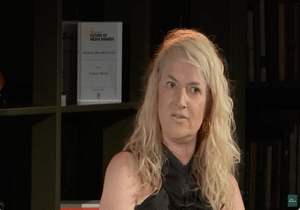 https://themediacoach.co.uk/wp-content/uploads/2024/07/feature.png
210
300
Eric Dixon
https://themediacoach.co.uk/wp-content/uploads/2016/04/the-media-coach-logo-300x137.png
Eric Dixon2024-07-02 10:12:082024-07-02 10:12:08Politics as Entertainment
https://themediacoach.co.uk/wp-content/uploads/2024/07/feature.png
210
300
Eric Dixon
https://themediacoach.co.uk/wp-content/uploads/2016/04/the-media-coach-logo-300x137.png
Eric Dixon2024-07-02 10:12:082024-07-02 10:12:08Politics as EntertainmentThis website uses cookies so that we can provide you with the best user experience possible. Cookie information is stored in your browser and performs functions such as recognising you when you return to our website and helping our team to understand which sections of the website you find most interesting and useful.
You can adjust all of your cookie settings by navigating the tabs on the left hand side.
Please view our privacy policy here.








